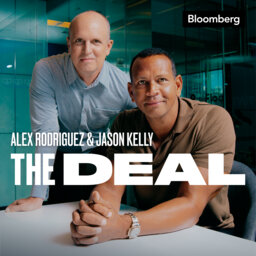How Paul Rabil Is Transforming Lacrosse Into a Major League Sport
In this episode of The Deal, Alex Rodriguez and Jason Kelly sit with former professional lacrosse player Paul Rabil to discuss the evolving business of the sport. Rabil tells the hosts how he managed to develop a new lacrosse league, why he's investing in its digital media presence and how he plans for the league's future growth.
 The Deal with Alex Rodriguez and Jason Kelly
The Deal with Alex Rodriguez and Jason Kelly


